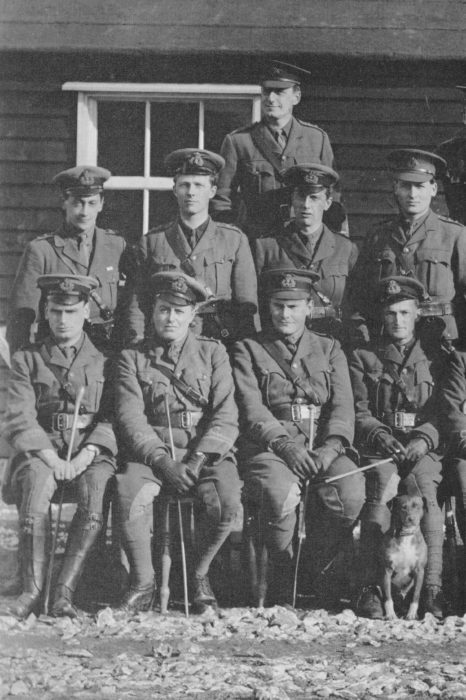Conflict within and between societies is, it seems, a regrettable, tragic constant in human existence. During the twentieth century, conflict reached a previously unimaginable scale. Through two worlds, and many other murderous animosities, the idea of human civilisation flickered and paled.
In the First World War, the total military war dead alone reached some nine million. Over a million lives were lost at the Battle of the Somme alone. In Greece, the numbers were lower but still substantial. Some 9,700 Britons, 30,500 French, 19,400 Serbs and 26,000 Greeks lost their lives at the Macedonian Front. But the theatre also included the island of Lemnos, which was used as a port and hospital station for the Gallipoli Campaign. The Commonwealth servicemen who lost their lives in the campaigns of the First World War lie in peace under the Mediterranean sky, mostly concentrated in cemeteries maintained by the Commonwealth War Graves Commission (some fifteen of them for the Great War).
The human mind, which thinks most easily in terms of particulars and discrete experiences, can hardly compute or credit such generalised slaughter. Perhaps the only response is a howl of grief or the empty silence that was heard on the fields of Flanders after ‘the monstrous anger of the guns’ had finally abated. But the First World War produced much exceptional poetry: poetry that shone sharply and icily, as it tried to communicate something essential, something real, something capable amid the charnel house of war.
In common with other British embassies in the former countries of battle, the British Embassy is working across the four years of the centenary to commemorate the men and women, servicemen and civilians, who fell in the First World War. We are trying to foster remembrance, to promote education and to engage a new generation.
As part of our commemoration, we have run across Greece a poetry competition, inspired by the British War Poets and having three themes: sacrifice, reconciliation and peace. The competition opened in November 2015 and was open for entries until May of this year.
We were overwhelmed by the response, receiving 550 entries. Our four judges – Haris Vlavianos (chair), Miltos Frangopoulos, Alicia Stallings and David Ricks – worked hard over the summer to find winners in four categories.
On the anniversary of Armistice Day, 11 November, we held an awards ceremony at the B&M Theocharakis Foundation for the Fine Arts and Music. All the prize-winners attended. Haris Vlavianos and I gave opening addresses. Our judges and sponsors (including the John S. Latsis Public Benefit Foundation and the National Bank Cultural Foundation) spoke movingly about conflict and the function of poetry. The new Culture Minister, Lydia Koniordou, read the winning poems, which will be published shortly in the journal Poiitiki. The winning poems are all superb, and will, I hope, when published, be widely read.
Poetry is not a panacea to the world’s conflicts and problems. But it is my belief that it can help us. In Greece, poets have been meditating on conflict since Homer first sang the Iliad. I hope that bringing the voices of the British War Poets to Greece has stimulated and will continue to stimulate reflection among Greek and British people not only on what our forefathers jointly did here, but also on the sources and remedies of today’s conflicts.
Winners of the competition:
An original poem in English by a student
First Prize: Hulkar Egamberdieva
Runner-up: Maria Kritikou
An original poem in Greek by a student
First prize: Erofili Albani
Runner-up: Dimitra Laskari
An original poem in Greek by an adult
First prize: Sotiris Delis
Runner-up: Athanasios Stroggilis
Translation into Greek of a poem by one of the British War Poets
First prize: Matianna Naka
Runner-up: Aggeliki Riga

